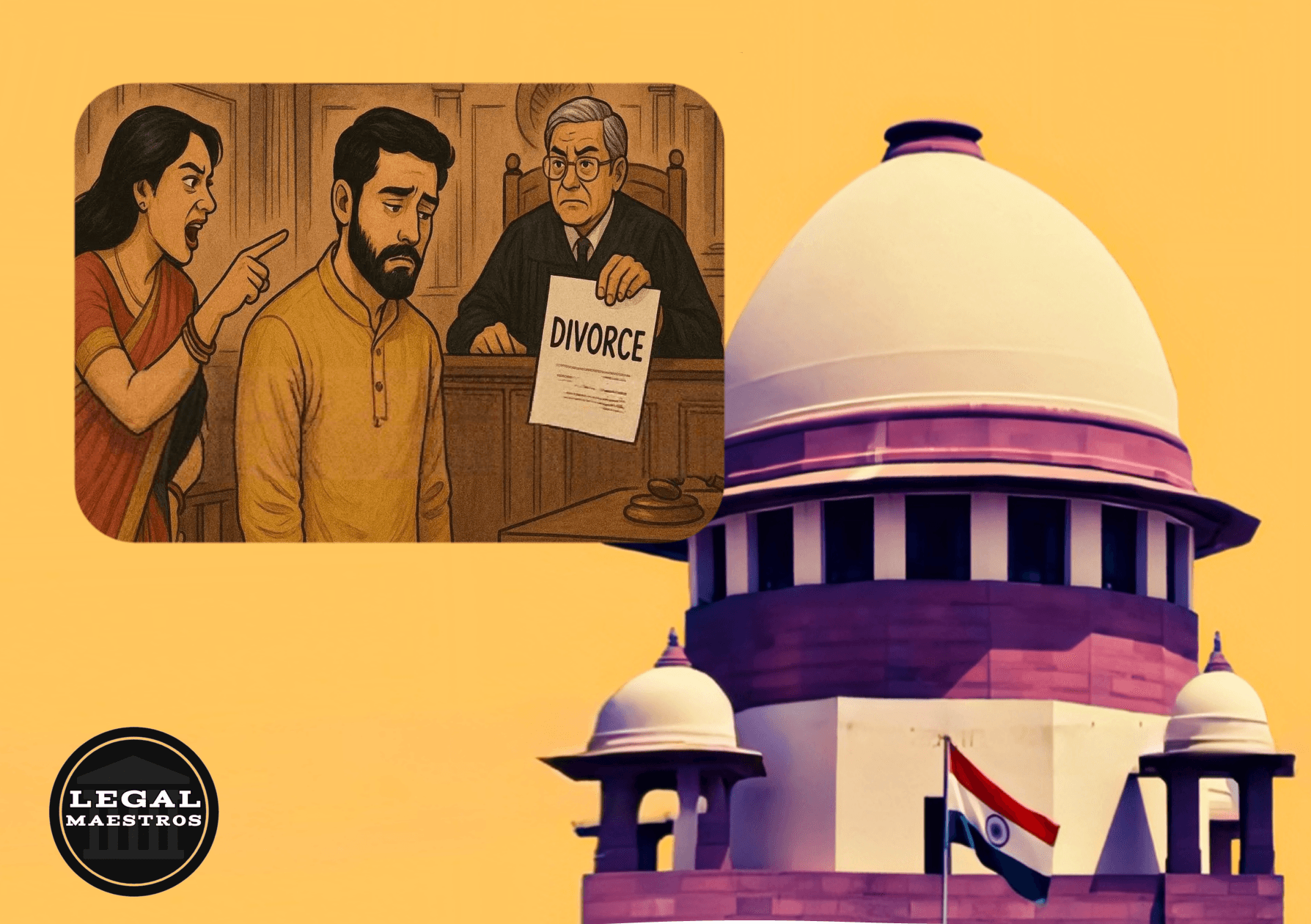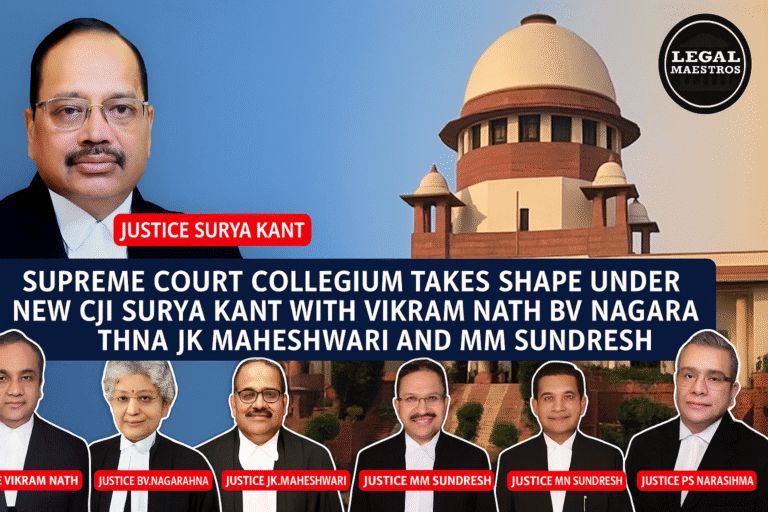
The Supreme Court on August 11 upheld the conviction of a former jail officer in Punjab for conspiring to help an undertrial prisoner escape from custody [Gurdeep Singh vs. The State of Punjab].
A Bench of Justices PS Narasimha and R Mahadevan affirmed the concurrent findings of the Sessions Court and the Punjab and Haryana High Court, which had convicted the officer in connection with a 2010 attack on police personnel escorting a prisoner to court.
Facts of case:
For any queries or to publish an article or post or advertisement on our platform, do call at +91 6377460764 or email us at contact@legalmaestros.com.
The incident occurred on November 30, 2010, when two head constables were escorting an undertrial prisoner to Talwandi Sabo Court. The officer accompanied them and suggested returning in a private Qualis instead of the police car. Near a village, two persons in the rear of the vehicle threw red chilli powder into the eyes of the escorting officers and attacked them with a knife and a kirpan. Despite the scuffle, the prisoner could not escape since he was handcuffed and chained to one of the head constable’s belt.
The injured officers along with the prisoner were taken to a hospital and an FIR was registered. The accused officer was unharmed and later went missing from the scene.
Judgement:
The trial court in 2014 found that he had arranged the private vehicle, ensured the stop at an isolated location, failed to protect the escorts, and absconded after the assault – conduct which, taken together, established his role in the conspiracy. The High Court upheld the verdict in 2023 prompting him to move the Supreme Court.
The top Court after considering the totality of the circumstances – the role of the accused in arranging the private vehicle, occupying the front seat, the presence of unidentified persons in the vehicle, the isolated stop, the attack, his lack of injury, and his disappearance – concluded that there was an established concert of action between him and the attackers.
It restated that such offences are seldom proved by direct evidence and are usually established based on the conduct of the accused and surrounding circumstances.
The bench also emphasized the responsibility of custodial officers and the aggravated breach of trust involved.
‘’In a constitutional democracy governed by the rule of law, custodial officers must be held to the highest standards of integrity. Any deviation amounts not only to legal delinquency, but to a grave institutional and moral breach,” the bench held.
Finding no reason to reduce the sentence, the Court dismissed the appeal and directed that the officer be taken into custody immediately to serve the remainder of his sentence.
Legal reasoning:
In its judgment, the apex court noted that while key witnesses Hardial Singh and the driver turned partially hostile, Harjit Singh, the injured escort officer, gave “detailed, consistent, and credible testimony” directly implicating Gurdeep Singh.
Harjit Singh’s account, it said, was sufficient to sustain the conviction.
Rejecting the argument that Gurdeep Singh’s prior exoneration in a police enquiry barred his prosecution, the Justice Narasimha-led Bench placed reliance on the Constitution Bench ruling in Hardeep Singh vs. State of Punjab case to hold that even a person not named in the FIR or charge sheet can be summoned to face trial if evidence recorded during the course of trial indicates his involvement in the offence.
“The appellant’s prior exoneration during the preliminary investigation cannot invalidate the judicial findings recorded on the basis of substantive trial evidence,” it said.
On the conspiracy charge, the apex court reiterated that such an offence is “seldom capable of being proved by direct evidence” and may be established from circumstantial evidence, conduct, and coordinated acts.
Observing that the prosecution has convincingly established the existence of a prior concert of action between Gurdeep Singh and the assailants, the Justice Narasimha-led Bench said, “The use of a private vehicle associated with the appellant, the involvement of unidentified persons, the stop at a scheduled location under a false pretext, and the appellant’s conspicuous inaction during the violent assault — despite being in a position of official authority — all form a continuous chain of incriminating circumstances that point toward his complicity in the conspiracy.”
The apex court rejected the defence’s contention that no overt act was attributed to Gurdeep Singh.
Referring to a bunch of precedents, the Justice Narasimha-led Bench said, “Every conspirator need not commit an overt act to be held liable; the agreement itself constitutes the offence.”
It further said that even though some witnesses turned hostile, “a hostile witness’s testimony need not be discarded in its entirety,” and a court may rely on the credible portions.
Concluding that Gurdeep Singh’s “behaviour before, during, and after the incident establishes his culpability under Section 120B IPC,” the Supreme Court upheld the concurrent findings of the courts below.
“His deliberate inaction, lack of any injuries, and subsequent disappearance from the scene further reinforce the inference of his active role. The appellant’s conduct was not peripheral but integral to the execution of the plan to facilitate the escape of the undertrial Kuldeep Singh,” it observed, dismissing Gurdeep Singh’s appeal.
“Considering the nature and gravity of the offence committed by the appellant, and more so, keeping in view his position as an Assistant Superintendent of Jail — a role that demands the highest standards of integrity, responsibility and adherence to the rule of law — this Court finds no mitigating factor to warrant any leniency in sentence. [T]he appellant shall be taken into custody forthwith, to undergo the remaining period of imprisonment,” added the top court







